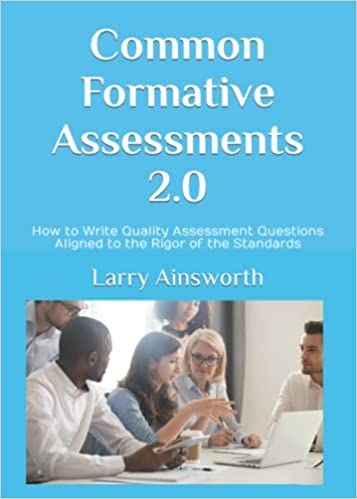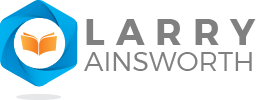TIMELESS PRACTICES TO IMPROVE STUDENT LEARNING
Supporting educators and leaders in their important work of helping every student become a confident and successful learner
Common Formative Assessments 2.0 Workshop

TIMELESS PRACTICE #4
BRIEF DESCRIPTION:
Even if you have never attended an assessment design course or workshop, by following the step-by-step CFA 2.0 design sequence, you will be able to successfully create a quality set of assessments (pre-, post-, and quick progress checks) for a unit of study. The process works equally well for grade-level teams of teachers in all grades and content areas as well as for “singleton” educators who alone teach a grade or subject.
The Common Formative Assessments 2.0 Professional Learning Workbook will guide you through each of the ten steps of the process. Its companion volume, the Common Formative Assessments 2.0 book, will help you deepen your understanding of key components while you are creating your quality grade- or course-level CFA!
WHAT WILL LARRY PRESENT?
The CFA You Create Will Include:
- Targeted Priority Standards for a unit of study
- “Unwrapped” concepts, skills, and identified levels of cognitive rigor
- Big Ideas and Essential Questions
- Unit learning intentions written as student success criteria
- Quick progress checks to assess student understanding of learning progressions
- Selected-response questions (multiple-choice format emphasized)
- Distracter analyses (incorrect but plausible answers) for multiple-choice questions
- Short constructed-response questions
- One extended-response question
- Solution statements for short and extended-response questions
- Answer key and scoring guides
- Pre-assessment aligned or mirrored to the post-assessment
WHO SHOULD ATTEND:
- K-12 classroom educators, individually or in grade-level or course-level teams
- Instructional coaches
- Curriculum and assessment coordinators
- School and district leaders
PROMINENT ENDORSEMENTS:
Click on these two links and scroll down page to Prominent Endorsements:
Click on these two links to learn how:
A High School Principal’s Endorsement
See the Impact CFA 2.0 Is Making in Valley View School District
COMMON FORMATIVE ASSESSMENTS 2.0 BOOK CLICK HERE TO READ MY BLOG POST ON COMMON FORMATIVE ASSESSMENTS 2.0 Click here to read my blog post, WHERE IS FORMATIVE ASSESSMENT FLOURISHING? IN VALLEY VIEW SCHOOL DISTRICT Click here to read my blog post, FEEDBACK FROM COMMON FORMATIVE ASSESSMENTS REVEALS EDUCATORS’ IMPACT
Larry Ainsworth’s Evaluation Comments from Mobile, Alabama School District
“This is a great process and if implemented fully will be the key to Mobile’s success.”
“I learned the value of starting with the CFA and building the learning from that point.”
“The specificity of each and every detail throughout the writing of the CFA 2.0 unit of study. I am a hands-on person; this was very valuable to me.”
“Hands-on experience writing quality assessments.”
“The information was very valuable and I learned to take ‘baby steps’ when introducing it to staff.”
“A great organizer for quick progress checks and alignment for better understanding and higher student achievement.”
“This is a great way of helping teachers to help students learn.”
“This has been WONDERFUL. Thank you!”
“Great process! Detailed; organized”
“Enjoyable and thought-provoking.”
“This workshop shows we can develop an accurate inference to have on hand that will show where our students are.”
“The most valuable thing I learned as a result of this workshop is that we need assessments that provide accurate inferences to ensure that our students are mastering the standards.”
“Outstanding professional development opportunity! Aligned info that, when applied, will produce immediate and positive impact!”
“It is nice to have a direction and protocol for practices that good teachers have done for years.”
“The information on the learning progressions and quick progress checks will ensure the alignment of the assessments to the standards.”
“This follow-up training (part 2 of the 4-day process) made CFAs make more sense. I can truly see how it can make assessments more beneficial in providing essential data to increase student performance.”
The most valuable thing I learned was:
“How to write a CFA because I had very little knowledge before this workshop.”
“How to create a CFA by starting with Priority Standards.”
“The CFA process: pre-assess; quick checks; monitor/adjust; post-assess.”
“The importance of quick progress checks!”
“Importance of writing pre- and post-assessments. Importance of pre-planned quick progress checks.”
"CFA process—new learning! The power of feedback—affirmation! Alignment of standards and assessments—affirmation!”
“Learning progressions and developing those quick progress checks that lead to those progressions being accomplished.”
“The value of formative assessments in checking student understanding and using assessments to adjust instruction.”
“This is a marathon, not a sprint—very helpful knowing this!”




